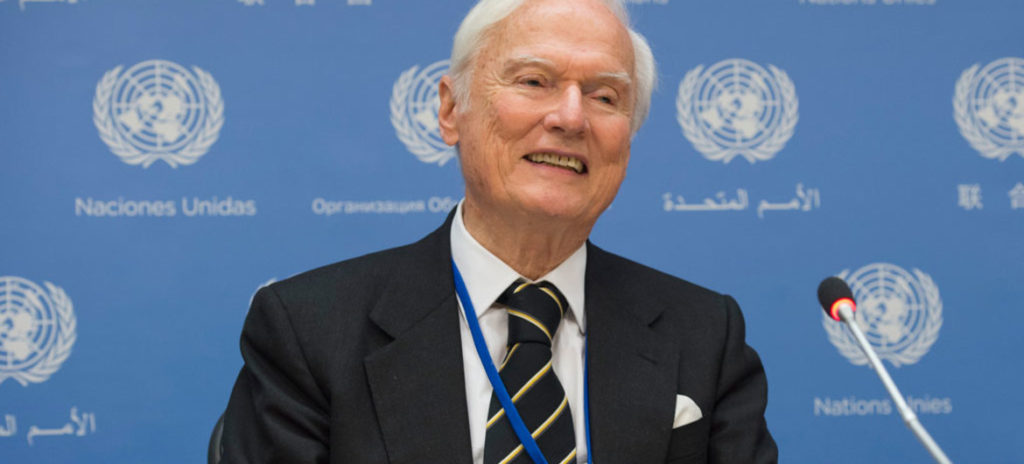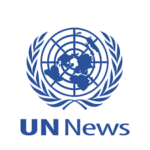Blockades ‘Expose’ the Innocent to the ‘Ravages of Economic War’ – UN Sanctions Expert Warns
UNITED NATIONS, 17 Sep 2018
UN News – TRANSCEND Media Service
Economic sanctions must not be allowed to degenerate into blockades which “expose people to the ravages of economic war in peacetime” said the UN independent expert on the effects of sanctions on human rights.
13 Sep 2018 – Special Rapporteur Idriss Jazairy, pointed out today that civilians affected by blockades do not benefit from the protection of the Geneva Convention, which is aimed at safeguarding civilians during wartime.
Sanctions usually lead to countries, or groups of countries, refusing to trade with a targeted State, but a blockade prevents the targeted State from trading with other potential partners.
Briefing the Human Rights Council in Geneva, Mr. Jazairy said that people in Iran and Venezuela risk being badly affected, were any blockade to be imposed, while the situation for those in Syria – already suffering grave human rights abuses – would have even worse consequences.
In Yemen, one of the poorest countries on earth, which imports almost all of its food, fuel and medicines, civilians were weakened further by a total blockade imposed in November 2017, preventing all humanitarian aid and commercial trade – including food and fuel – from entering the country.

UN Special Rapporteur on human rights and international sanctions, Idriss Jazairy. UN Photo/Eskinder Debebe
In Gaza, where residents have lived through an Israeli blockade for more than a decade, after the militant group Hamas gained control of the enclave, civilians have suffered from a deteriorating humanitarian situation.
In August, UN Political Affairs chief Rosemary di Carlo told the Security Council that humanitarian aid in the Middle East should not be held hostage to politics.
“There is a need for differences between States to be resolved through peaceful means as advocated by the UN Charter, while avoiding exposing innocent civilians to collective punishment,” said Mr. Jazairy, expressing concern about the growing practice of unilateral sanctions, where a particular country bans companies and corporations from doing business with a sanctioned state.
Referring to a recent meeting in Brussels with European Officials, Mr. Jazairy told the Council that he has urged the EU to limit “secondary sanctions”, which go beyond targeted countries.
He said he would focus on making humanitarian exceptions to internationally imposed measures effective, until States lift all sanctions that lead to human rights infringements.
DISCLAIMER: The statements, views and opinions expressed in pieces republished here are solely those of the authors and do not necessarily represent those of TMS. In accordance with title 17 U.S.C. section 107, this material is distributed without profit to those who have expressed a prior interest in receiving the included information for research and educational purposes. TMS has no affiliation whatsoever with the originator of this article nor is TMS endorsed or sponsored by the originator. “GO TO ORIGINAL” links are provided as a convenience to our readers and allow for verification of authenticity. However, as originating pages are often updated by their originating host sites, the versions posted may not match the versions our readers view when clicking the “GO TO ORIGINAL” links. This site contains copyrighted material the use of which has not always been specifically authorized by the copyright owner. We are making such material available in our efforts to advance understanding of environmental, political, human rights, economic, democracy, scientific, and social justice issues, etc. We believe this constitutes a ‘fair use’ of any such copyrighted material as provided for in section 107 of the US Copyright Law. In accordance with Title 17 U.S.C. Section 107, the material on this site is distributed without profit to those who have expressed a prior interest in receiving the included information for research and educational purposes. For more information go to: http://www.law.cornell.edu/uscode/17/107.shtml. If you wish to use copyrighted material from this site for purposes of your own that go beyond ‘fair use’, you must obtain permission from the copyright owner.
